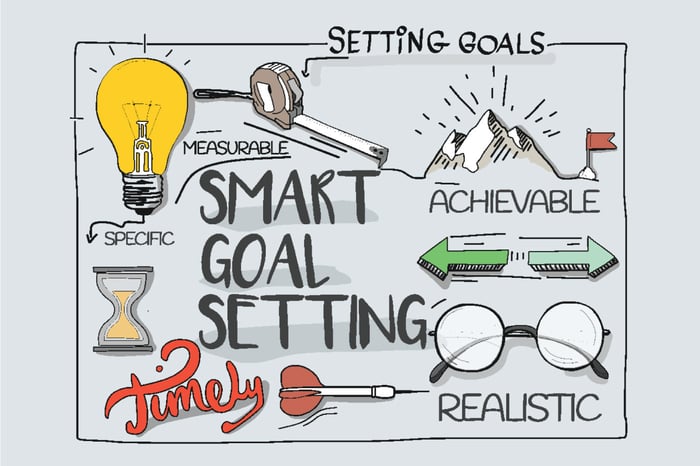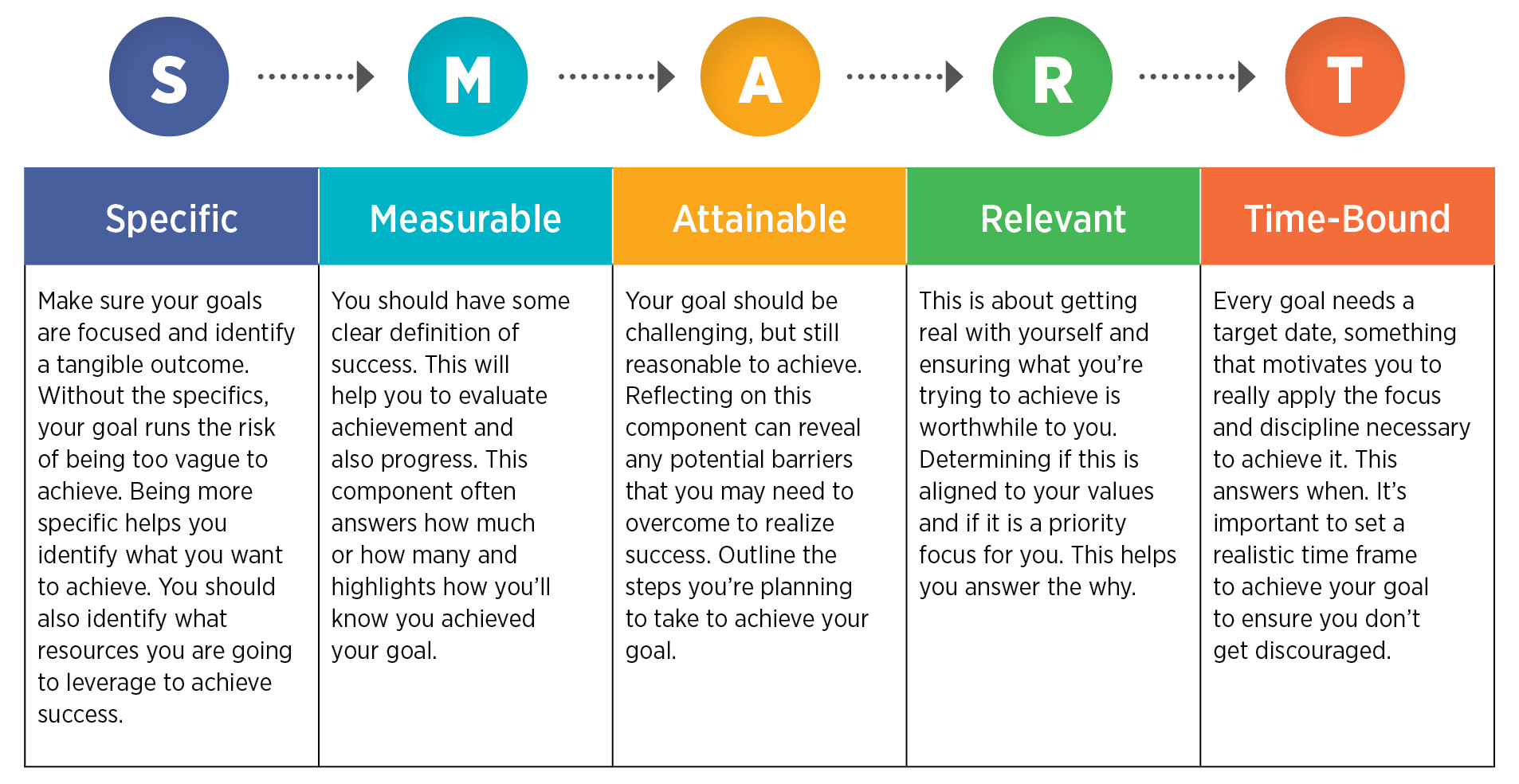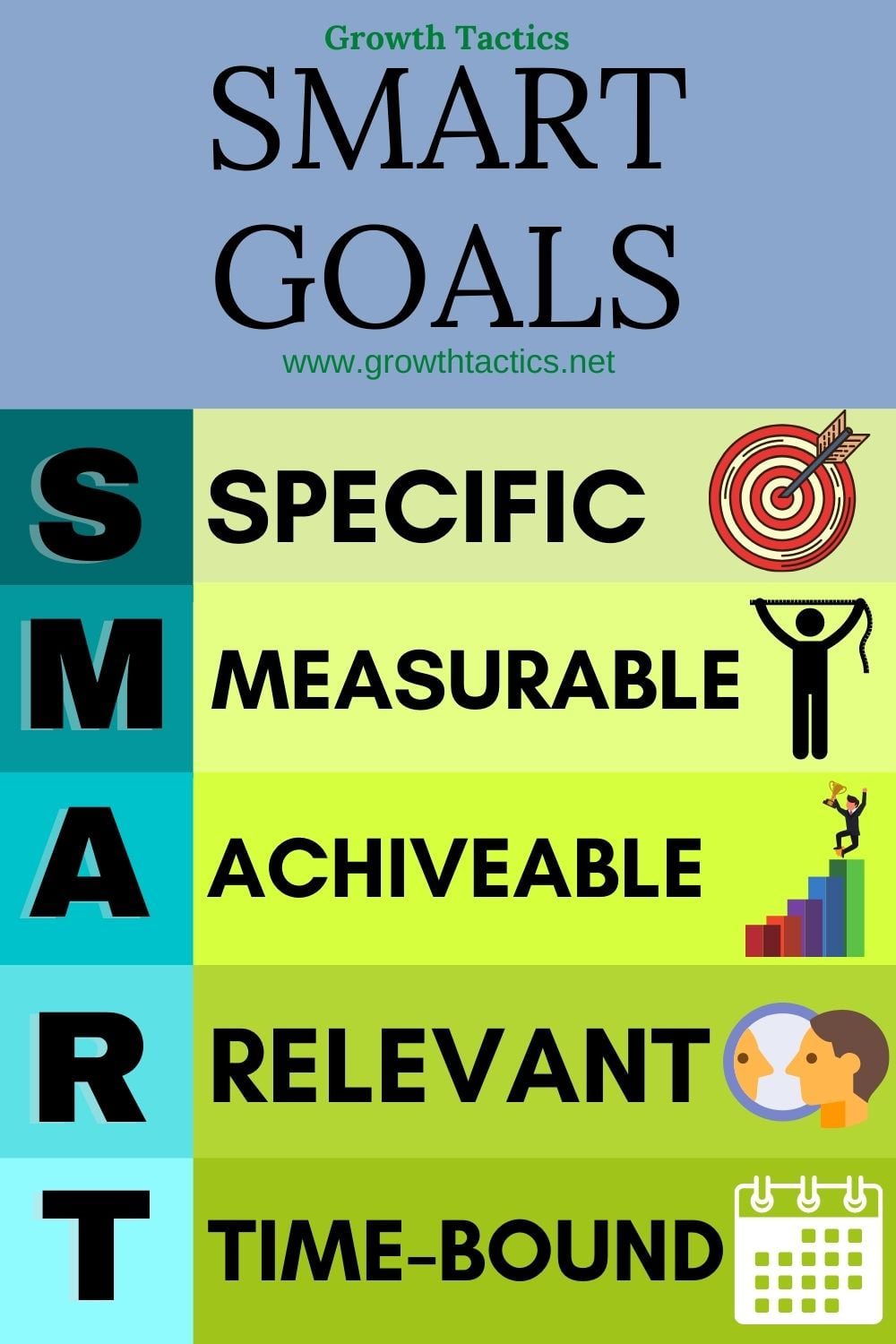How to set smart goals
A new year brings new goals to work toward. That is, according to a survey conducted for Urban Plates, which found that 38% of Americans planned on setting a New Year’s resolution in 2020. If you expected to be further along toward your goal by now, you may need to reassess how effective your original goal was.
For example, the goal to “find a better job” is very broad. In this situation, a few key pieces to a successful goal are missing. First, it’s unclear what a “better job” means to you. Also undefined is how you plan on achieving your end result, and by when. All of these missing pieces make it unclear whether this goal is reasonably attainable.
To set stronger and sustainable goals, it’s time to get SMART.
What are SMART goals.
“SMART” is a quick way to remember what makes a great goal, and gives you an effective framework for achieving your desired outcome. Here’s what you need to know about the acronym.
Specific.
A strong goal must be detailed and defined. This often relies on answering who, what, when, and where. Using the previous example, “find a better job,” ask yourself: What does better mean? It could mean a job that pays five dollars more per hour or a promotion to a management position.
Where will you find it? Through an online job board, LinkedIn, recruiting firm, or your own network? Knowing the specifics of your goal gives you a clearer direction on where and how to even start.
>>READ MORE :
Measurable.
Ensuring that your goal is measurable lets you understand how you’re pacing toward your goal and when you can say you’ve achieved it. This is particularly helpful if your goal involves a longer time frame because you can break your goal down into smaller goals.
For example, if your goal is to write a novel, a measurable aspect of the goal can be the number of total chapters the book will have, and how many chapters you’d like to write each month.
Attainable.
When creating goals, set yourself up for success by being realistic. Ask yourself if the goal you’re striving for is reasonable and attainable given your current circumstances.
Make sure your goal accounts for any new skills, training, or circumstances needed to accomplish your goal. Maybe your goal is to obtain a management role within your current department, but it requires a special certification that you don’t have. Getting the certification can be another goal on the way to your larger one.
Relevant.
If you’re putting energy toward a certain outcome, that outcome should move your greater objective forward. For example, if your goal is moving up to a management role, ask yourself why you want to achieve that goal. Do you enjoy leadership? Is developing a team something you’re passionate about long-term?
Goals that are relevant to your future self are more sustainable because there’s an intrinsic motivation to fully accomplish your goal.
Timely.
Establishing a deadline for your goal adds accountability. Without an established end, there’s no clear cue to begin working toward your goal. Setting time-based parameters is also a good metric to help measure your success.
If your goal was to write a twenty-three-chapter novel in twelve months, the twelfth month acts as a signal to stop and assess your progress. In other words, did you reach your goal or miss it? If you missed it, how close did you get to your writing goal?
A better chance at success.
SMART. goals are a useful method of setting an objective, clearly defining your direction and approach, and setting a date for results. A vague goal like “find a better job” can now be transformed into a SMART goal, like “be promoted to a senior account executive with a 20% salary increase by the end of 2020.”
Thinking deeper—and smarter—about your goals can help you reach the results you’re working toward.
Examples of SMART goals.
I will obtain a job as a high school math teacher within three months after graduating with my Bachelor of Science in Education. Measurable: Success can be measured by the number of applications, interviews and job offers. Achievable: The goal setter will have the appropriate degree for the job.






